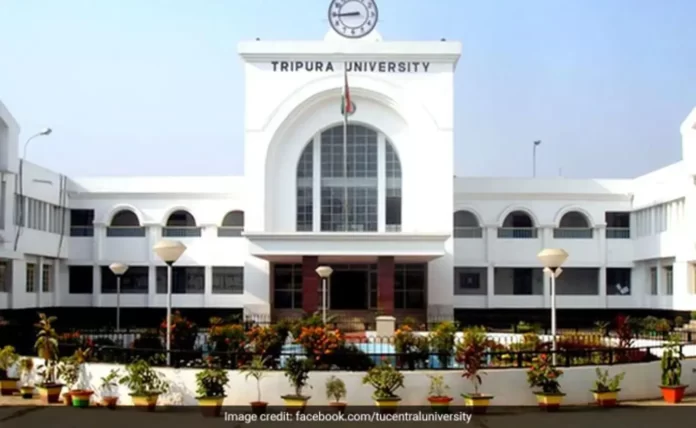In an unexpected turn of events, Tripura Central University (TCU) and MBB University have decided to increase the admission fees for first-year students, much to the anger and dismay of students and their guardians. This decision comes as a shock, as until now, the average fee for the first year was Rs 310.00. However, this year, the two universities have hiked the fee to Rs 1262.00, more than four times the previous amount. It is worth noting that the fees for female students remain unchanged. This sudden increase has sparked accusations of the universities heading towards the commercialization of higher education.
Responding to the concerns raised by the students, a delegation from the All India Progressive Students Forum (AIPSF) met with the Director of Higher Education to demand the withdrawal of the new fee structure for first-year students. Initially, the Director, N.C. Sharma, displayed unwillingness to meet the AIPSF delegation, but due to mounting pressure, he eventually agreed to engage with them. In a statement released by AIPSF Secretary Debasish Bhowmik, it was revealed that the Director had initially denied any fee increase. However, when presented with a copy of the notice, he fell silent. The AIPSF representatives then conveyed to the Director that unless the hiked fee was reduced to the previous years’ levels, the association would initiate a protest to demand its withdrawal.
The sudden rise in admission fees has created significant financial hardships for male students, many of whom must earn their own income to cover the expenses of their education. This fee hike not only poses a burden on students but also raises questions about the universities’ intentions and their commitment to providing affordable education.
The All India Progressive Students Forum, as a representative body for students, strongly opposes this decision and highlights the detrimental impact it will have on aspiring scholars. Education should not be driven solely by profit motives; rather, it should be accessible to all, regardless of their economic backgrounds.
The AIPSF intends to mobilize students and launch a peaceful agitation to voice their demand for the withdrawal of the increased fees. They firmly believe that education should remain a means of empowerment and social upliftment, not a tool for commercial gains. The delegation’s meeting with the Director of Higher Education signifies the determination of students to protect their rights and fight against unjust policies.
As the situation unfolds, it remains to be seen how the universities and the authorities respond to the students’ demands. The issue has attracted widespread attention and highlights the broader debate around the affordability and commercialization of higher education in India. Students and their supporters hope for a resolution that prioritizes the accessibility of education and acknowledges the challenges faced by those seeking knowledge and advancement.


